Interviews with many nonprofit organizations across the Western Balkans during the current and the previous year provided us with a slightly clearer insight into how they are coping with the aftermath of the pandemic. What do their regular activities look like? How did they proceed with the implementation of their programs? How demanding was it to move from the physical to the online world without denying the many forms of support they provide to their users?
You will find some of the answers in this text, where the Association MoSt from Croatia, Žene Bara from Montenegro, KRIK from Northern Macedonia, and Kosovo Women's Network enabled us to learn some of the examples of practices used in the region, as well as ways to adapt to new rules of the COVID-19 virus pandemic.
In a conversation with the MoSt Association, a nonprofit from Split with local, regional, and national activities based on the values of volunteer work, solidarity, respect for diversity, and human rights, Đordana Barbarić, head of the Center for Knowledge for Social Inclusion and Poverty Reduction, revealed how the COVID- 19 crisis affected their work. We learned how their work has changed and what activities they were the most focused on at the very beginning of the pandemic.
Đordana: During the pandemic year, we faced, like all citizens of the world and like many in helping professions, completely new circumstances in working with users. It was a huge challenge to ensure the epidemiological conditions in our Center for the Homeless, to ensure that everything works smoothly, primarily to provide help and support to those on the street.
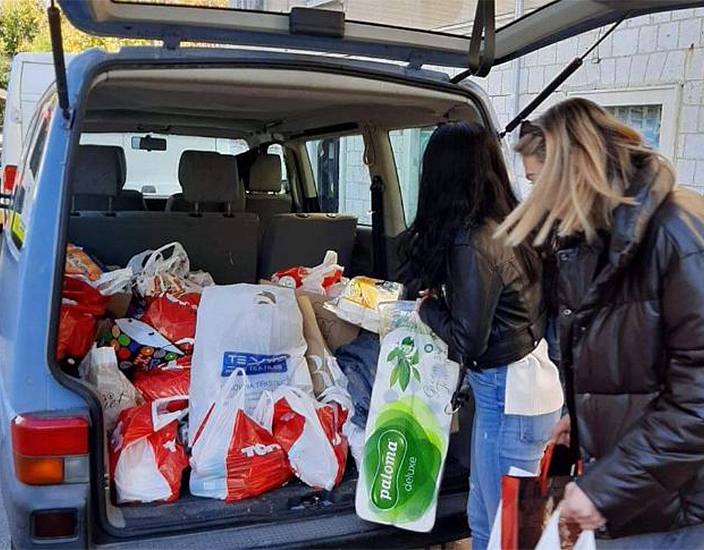
There is no "lockdown" period in social care; our users need daily food and accommodation. Children and families we work with need psychosocial support, so we started using Internet technology and provided different contact modalities. We conducted counseling online and directly with all protective measures, connected volunteers and children and youth from our Center for Support of Children and Youth with Behavioral Problems program, and provided daily learning assistance and peer support.
This period also opened many questions about how our social welfare system can do better and more efficiently. We wrote appeals to the competent institutions, promoted civic solidarity through social networks, and encouraged civic philanthropy in the new circumstances. We inspired work in the networks we launched at the national level (Croatian Network for the Homeless, Croatian Network of Social Self-Service), conducted joint actions, round tables, conferences...
An excellent new circumstance in these difficult times was the possibility of free learning and training through webinars and ZOOM, and other platforms, and in fact during this difficult 2020, we did not stop, and we did everything to make strides in the "new normal". During 2020, we prepared hundreds of "covid packages" in backpacks with all the necessary props to maintain hygiene and adhere to epidemiological measures and distributed them to users who do not have the personal means to ensure this. We also received an award from the Belgian Foundation and new funding for the same and similar activities aimed at vulnerable groups for this step forward.
The Association of Women of Bar from Montenegro revealed that the pandemic led them to deep thinking. Read the details below, in the answer of the president of this association, Ljiljana Vujović.
Ljiljana: The start of the pandemic has led us to think deeply about what and how to proceed. The suspension of public transport made it impossible for our users to come to the National Kitchen. The need for food and help for many families suddenly tripled, and we had to find a way to respond and help. Since we don't have a delivery vehicle, we drove the meals alone to the door unfilled.
As there were no protective masks in Bar, within 12 hours, we gathered a group of volunteers who sewed over 10,000 masks, which we gave as a gift to everyone who approached us, from medical workers to fellow citizens who came to our door.
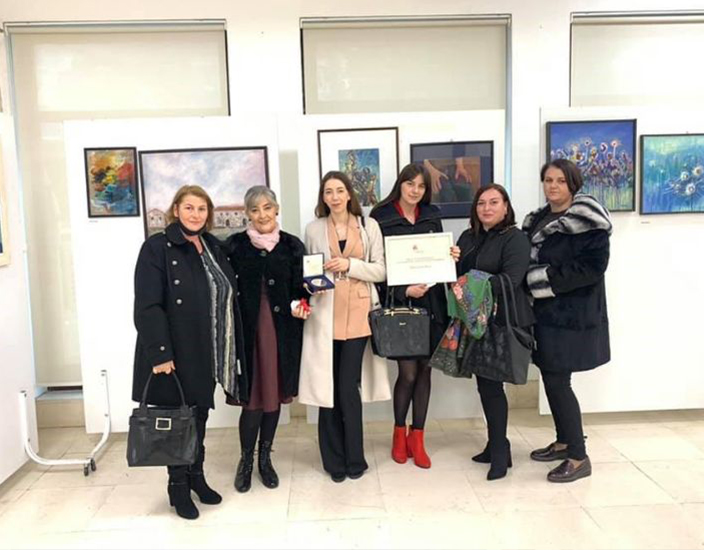
We are very proud of the opportunity to help a helpless, unknown man in the most challenging year. We could not have the funds to donate a respirator or something similar to the Hospital, but we donated what we could.
The volunteer of the association, Aleksandra Gvozdenović Kosović, adds that the pandemic changed everyone's lives, even their priorities.
Alexandra: The pandemic made it impossible for us to realize many things that brought us income, such as sales of humanitarian bazaars and various types of manifestations. However, sewing masks, collecting groceries, packing aid packages in food, hygiene, procurement of medicines, firewood, medical supplies, and the above distribution was an everyday part of our association.
In an interview with the Center for Youth Activism KRIK from Northern Macedonia, we learned from the executive director Mile Karadafova that transferring activities from the physical space to the digital world is one of the ways to continue working.
Mila: We transferred the activities we planned to realize with our physical presence to the Internet. School programs are currently online. Only one school organizes them in person. Office staff physically returned to work in early 2021 and continues to work at total capacity. One of the activities we postponed for a while was the European Solidarity Corps, where we had to delay the start of volunteer activities for volunteers who will be volunteering in the long run for the future. We are now able to accept only short-term volunteers.
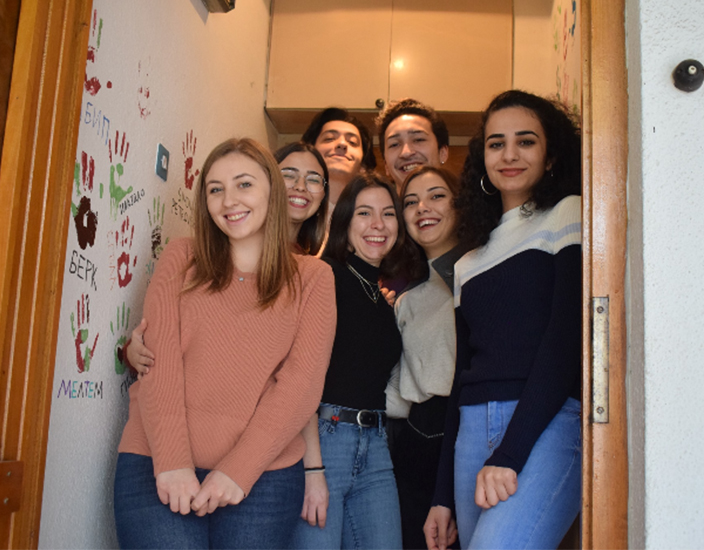
Currently, some of the projects that KRIK is working on are KA2 from the Erasmus + program. The projects themselves are designed to implement intellectual results, so that part of the work can run smoothly. In these projects, we have moved the meetings with the partners forward, and until then, we are meeting online.
The interview with Kosovo Women's Network gave us an insight into their perspective presented to us by Etleva Malushaj, coordinator of the project "Strengthening Women's Participation in Politics" supported by the EU.
Etleva: Certainly, the pandemic affected the work of our organization by limiting our activity and preventing physical meetings with our members. However, as far as public health is concerned, we have tried to organize our work and activities online through various platforms. Of course, we were constantly worried because the pandemic was making women's lives difficult. Their health is more endangered because they are more represented in healthcare and other vital sectors. Many women lost their jobs and faced economic difficulties. Also, during this time, domestic violence cases have increased, and women, in addition to the pandemic, are also endangered in the premises of their homes. As an organization, we have carefully monitored the situation in Kosovo and prepared a research report, "Pandemic does not recognize gender," in which we made a budget analysis that evaluates the Government of Kosovo's response to the Covid-19 pandemic from a gender perspective.
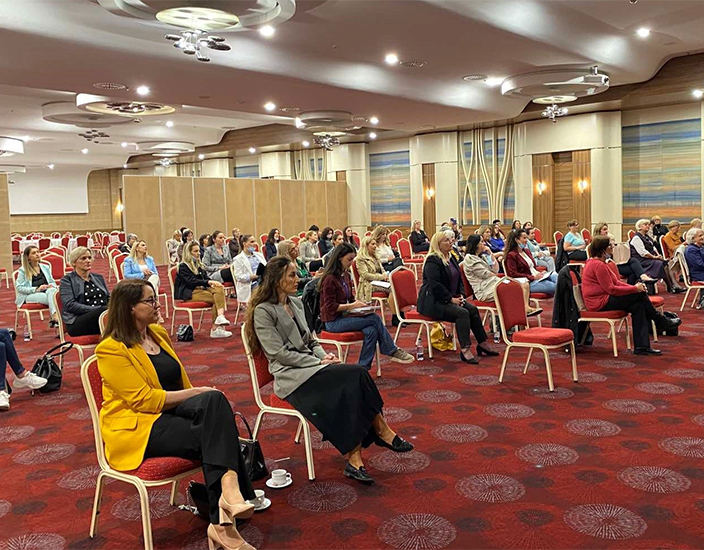
We have also actively advocated in the Government of Kosovo to heed these recommendations, including the allocation of funds to support women in need during emergency situations. We have reallocated the resources available to us to address the situation created with Covid-19 specifically by facilitating the transfer of resources to small organizations working with marginalized groups in the Western Balkans. These organizations have made efforts to address gender-based violence as well as gender discrimination in relation to work that has increased because of the pandemic and measures taken by the government. In addition to providing grants, we have also worked with shelters and service providers in Kosovo and Serbia to develop a tele-counseling guide that would enable women to receive psychological counseling during isolation in a safe manner. We have also raised funds to provide digital equipment to our members during the pandemic.
It is of great importance that the mentioned organizations from the region are bound by mutual solidarity and support in finding a solution to reduce the consequences of the pandemic. We recently wrote about solidarity during this period in Western Balkans - about the Covid-19 virus, removing the effects by supporting communities, and research data on giving for the common good. Find out more in Philanthropy's Response to Covid-19 in the Western Balkans.
If your organization wants to share its story of adapting to the pandemic conditions, write to us at hello@catalystbalkans.org.
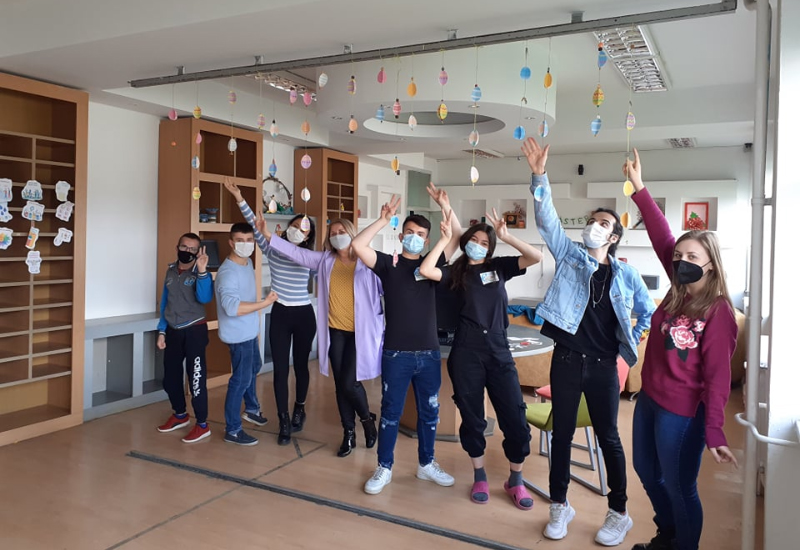

Leave a comment